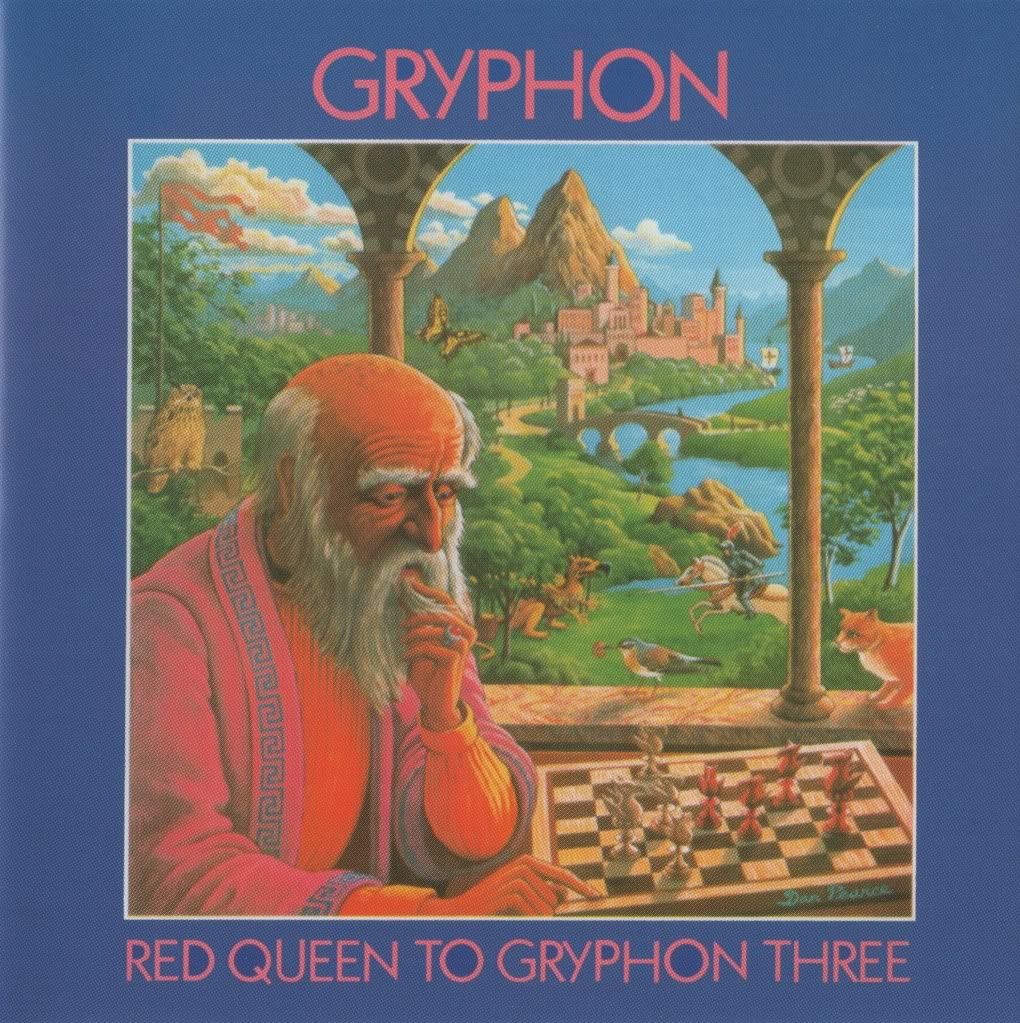Some progressive albums from the 1970's sound like the compositions could be played in the present and might actually manage to sound a little more modern, while others remain permanently tied to the time of their origin. British group Gryphon's 1974 third album is surely one of the latter category, and a perfect choice to end the relative drought of progressive material here. Listening to this album is like burying your head in a synthesized pillow of 70's renaissance heaven.
Among the numerous progressive groups of similar ambitiousness, Gryphon are distinguishable (on this album at least) for eschewing vocals entirely and utilizing crumhorns, a Renaissance-era woodwind that imbues the band's backward-looking style with some aural authenticity. Looking at the band's credits, though, it's not a huge surprise they're adept at accommodating the crumhorn--the horn is double-reeded, and Brian Gulland spends half of his time in the group playing bassoon. Unsurprisingly considering these guys' academic credentials, the virtuosic level of musicianship is one of the album's strongest characteristics.
Compositionally, Gryphon has to be one of the most classically-influenced contemporary progressive groups, neatly folding Renaissance and especially Baroque influences into their songs while still pumping up the amplification with electric guitar and bass, drums and some well-arranged synth parts. The album's "Opening Move" boasts some of the dreamiest instrumental passages, utilizing gorgeous but tense chord progressions, and juxtaposing a twinkling group sound very much influenced by passages in similar Yes songs with interlocking contrapuntal sections similar to those often explored by Gentle Giant. Unlike Yes and Gentle Giant, though, Gryphon rarely breaks past the Baroque atmosphere into a more contemporary rock sound. In some ways, they don't have to because their vocal-free sound doesn't pose the problem of matching lyrics and vocals to such an academic sound, but it's also because they're exploring the fusion of classical and rock to a much deeper extent. The ebb and flow of tempo and energy in "Opening Move" is abetted by the development of a strong melodic motif and showcases of the band's multi-instrumental talents.
"Second Spasm" features the most overt rock sounds of the album, with the bass and guitar doubling on a boisterous and satisfying progressive riff after a couple of the most intricate Medieval and Baroque passages of the album. As might be reasonably inferred from its title, "Lament" is the requisite quiet piece, which seems slightly unnecessary considering even most of the mid-tempo pieces here are fairly mellow. By the time the album closes with "Checkmate," it's apparent that the group's arrangements--replete with synth/piano double runs and multi-flute harmonies--are the album's greatest asset. While some of the melodies are unmemorable even after numerous listens, there's always joy to be found in the spaces between the multiple simultaneous sounds, and it's clear the band took great care with keeping the sections of their extended pieces constantly on the move and heading toward the next surprising combination. While the band's sound is uncommercial by even progressive standards and the album will always sound hopelessly dated, this kind of music will always sound great to the converted and acts as a cheerful reminder that there was once a time when bands making music like this could land a record deal and at least have a shot at success.
Get it here


No comments:
Post a Comment